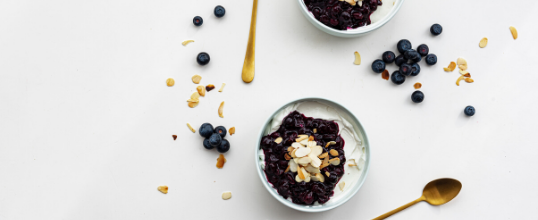Some of you might have heard in magazines, the news, and other media outlets about the importance of gut health. You might have read how there is a magical connection between the gut and brain. You might have heard about organisms with names like Clostridium, Faecalibacterium, Eubacterium, Ruminococcus, Peptococcus, Peptostreptococcus, and Bifidobacteriu. What does all of this mean and why are these microorganisms so important to our everyday lives?

To begin, let’s back up to what the gut microbiome actually is. The gut microbiome is composed of many bacteria that contribute to metabolic functions, protect against diseases, and aid the immune system, which directly and indirectly affects most of our physiologic functions. Part of the gut microbiome’s role is to start the digestion process. Each bacteria in the gut has a role in this process as different bacteria are better at breaking down certain substrates more than others. It is mutually beneficial for us, as a host, and the bacteria for food.
More and more research is being conducted showing the correlation between the gut-brain axis and and how feeding your gut is feeding your brain. According to this study, the gut sends information to the brain through nerves and hormones regarding energy uptake and other conditions that could affect mood, mental health, and general well-being. Recent studies have tried to explain how the gut’s microbiome affects anxiety and depression. On-going animal and human studies are still being performed to determine if an approach to changing the gut-brain axis could help treat, prevent, or improve anxiety, depression, and mental health. Other studies are being done to see if the microbiota-gut-brain axis is helpful for the treatment of chronic diseases such as cardiovascular disease, irritable bowel syndrome and inflammatory bowel disease. These diseases are found to have an altered gut microbiome and researchers are seeing if something can be done to change the microbiome, thus improving the health of humans and overall severity of the given disease.
Now, we understand the gut is an important part of our health, but how do we feed our gut in the correct way? Studies have shown time and time again that the use of probiotics and prebiotics are important ‘food’ for your gut’s microbiome. Probiotics are live organisms found in some foods and are the ‘good’ bacteria for your gut. Food sources of probiotics include fermented vegetables, kefir, kimchi, kombucha, tempeh, and That’s it. Probiotic Bars. Prebiotics are not a live organism, but rather a non-digestible carbohydrate that other organisms can feed on. Some forms of prebiotics from food sources include steel cut oats, asparagus, apples, bananas, onions, and garlic. I love That’s it. Probiotic Bars because they don’t need to be refrigerated and contain prebiotics and probiotics! They are a great snack to grab and go.
As more research emerges, it is crucial that we understand gut health and how it impacts the body.
Maggie is a registered dietitian and owner of the food blog Meals with Maggie. She is a Michigan-based dietitian who believes healthy eating should be attainable, easy and delicious. Follow her on Instagram and Pinterest.
Related Blogs
Maintaining Good Gut Health and Probiotics
The Ultimate Guide to Probiotics
The Ultimate Guide to Prebiotics
References
1. Tsurugizawa T, Uematsu A, Nakamura E, Hasumura M, Hirota M, Kondoh T, Uneyama H, Torii K: Mechanisms of neural response to gastrointestinal nutritive stimuli: the gut-brain axis. Gastroenterology. 2009, 137: 262-273. 10.1053/j.gastro.2009.02.057.
2. Tuohy, Kieran M, et al. “Using Probiotics and Prebiotics to Improve Gut Health.” Drug Discovery Today, Elsevier Current Trends, 12 Aug. 2003, https://www.sciencedirect.com/science/article/pii/S1359644603027466.
3. Shreiner, Andrew B, et al. “The Gut Microbiome in Health and in Disease.” Current Opinion in Gastroenterology, U.S. National Library of Medicine, Jan. 2015, www.ncbi.nlm.nih.gov/pmc/articles/PMC4290017/.
4. “The Gut Microbiome and Diet in Psychiatry: Focus on... : Current Opinion in Psychiatry.” LWW, https://journals.lww.com/co-psychiatry/Abstract/2015/01000/The_gut_microbiome_and_diet_in_psychiatry__focus.2.aspx.

